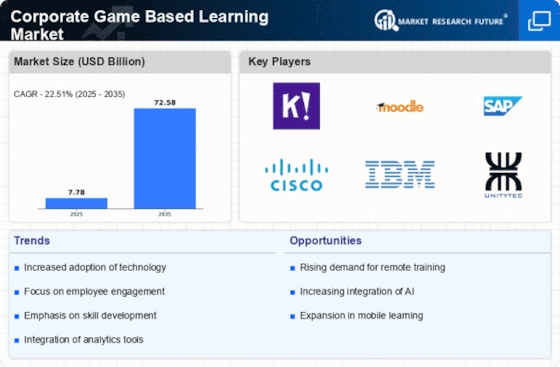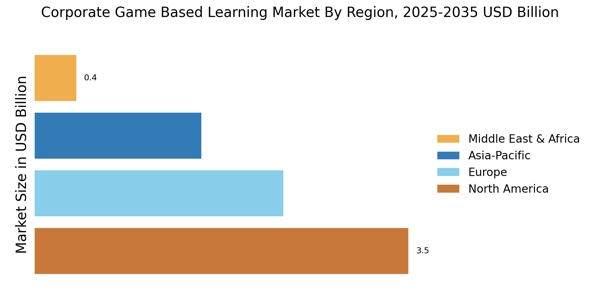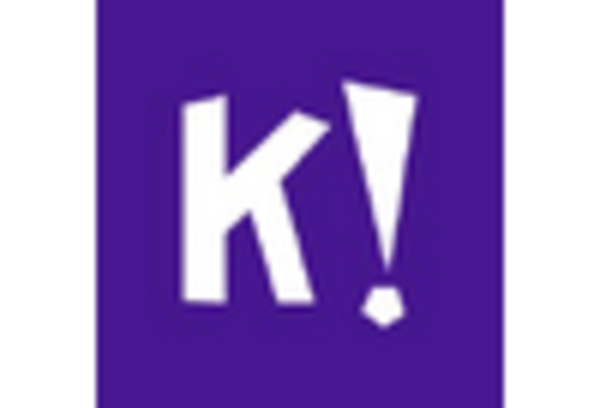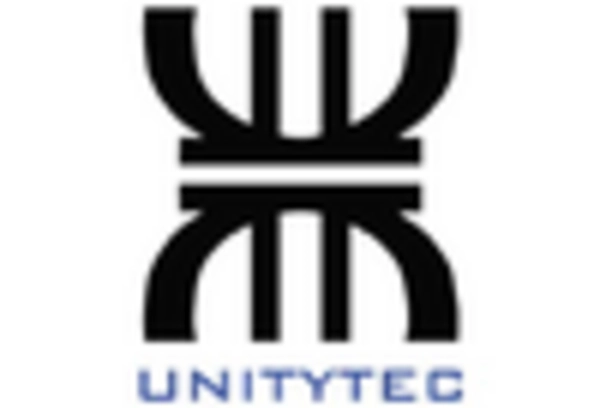Enhanced Employee Engagement
The Corporate Game Based Learning Market is witnessing a notable increase in employee engagement levels due to the interactive nature of game-based learning solutions. Organizations are increasingly recognizing that traditional training methods often fail to captivate employees, leading to disengagement. In contrast, game-based learning fosters a more immersive experience, encouraging active participation. According to recent studies, companies that implement game-based learning report a 60% increase in employee engagement compared to conventional training methods. This heightened engagement not only enhances knowledge retention but also promotes a positive workplace culture, ultimately contributing to improved productivity and employee satisfaction.
Integration of Data Analytics
The integration of data analytics within the Corporate Game Based Learning Market is emerging as a crucial driver. Organizations are increasingly leveraging data to assess the effectiveness of their training programs. Game-based learning platforms often come equipped with analytics tools that provide insights into employee performance and engagement levels. This data-driven approach enables companies to identify areas for improvement and tailor their training strategies accordingly. Research suggests that organizations utilizing data analytics in their training programs can achieve a 40% improvement in learning outcomes, underscoring the importance of informed decision-making in the realm of corporate training.
Focus on Soft Skills Development
The Corporate Game Based Learning Market is increasingly focusing on the development of soft skills, which are essential for employee success in the modern workplace. As organizations recognize the importance of skills such as communication, teamwork, and problem-solving, game-based learning offers innovative solutions to cultivate these competencies. Interactive scenarios and role-playing elements within games allow employees to practice and refine their soft skills in a safe environment. Data indicates that companies prioritizing soft skills training through game-based learning experience a 25% increase in team collaboration and effectiveness, highlighting the value of these programs in fostering a well-rounded workforce.
Customization and Personalization
The Corporate Game Based Learning Market is evolving towards greater customization and personalization of learning experiences. Organizations are recognizing that a one-size-fits-all approach to training is often ineffective. Game-based learning platforms now offer tailored content that aligns with specific organizational goals and employee needs. This trend is supported by data indicating that personalized learning can lead to a 50% increase in knowledge retention. By allowing employees to engage with content that resonates with their roles and responsibilities, companies can foster a more relevant and impactful learning environment, ultimately enhancing overall training effectiveness.
Cost-Effectiveness of Training Solutions
In the Corporate Game Based Learning Market, the cost-effectiveness of training solutions is becoming a pivotal driver. Organizations are increasingly seeking ways to optimize their training budgets while ensuring effective learning outcomes. Game-based learning platforms often require lower upfront investments compared to traditional training programs, which may involve extensive travel and material costs. Furthermore, the scalability of these platforms allows companies to train a larger workforce without proportional increases in costs. Recent analyses indicate that businesses can save up to 30% on training expenses by adopting game-based learning solutions, making it an attractive option for organizations aiming to maximize their return on investment.

















